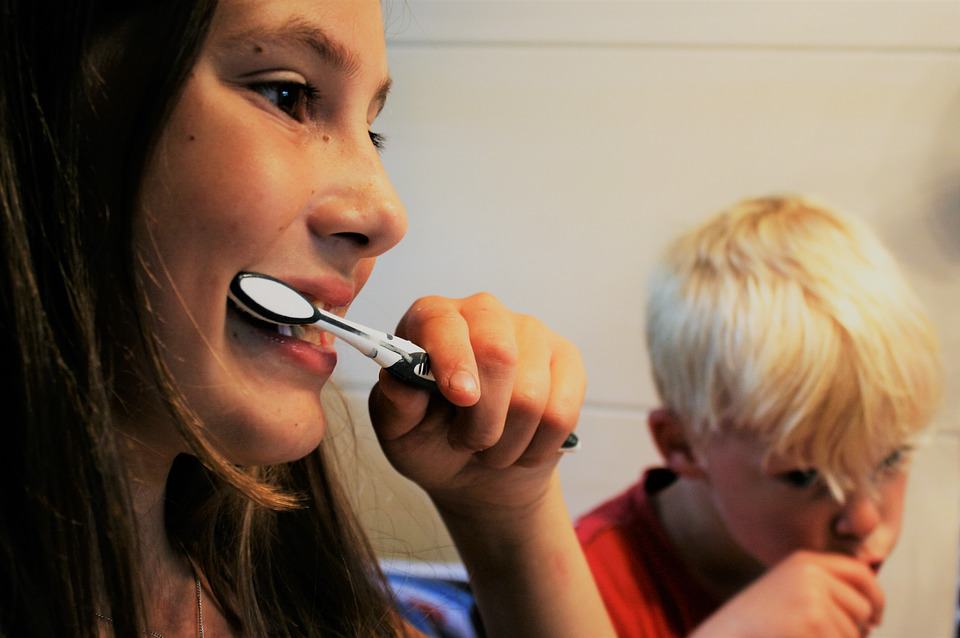Parents, did you know that every February is National Children’s Dental Health Month (NCDHM)? This year’s campaign slogan is “Brush and clean in between to build a healthy smile”. In the spirit of NCDHM, below is a guide for parents on how to ensure their child has good dental health.
Brushing their Teeth
The most important activity to maintain dental health is to brush your child’s teeth. A child should brush their teeth twice a day and be supervised while doing so, if they are still young (children aged 2 to 6). Young children should be assisted with putting toothpaste on their brush (a pea-sized amount of fluoride toothpaste). Children should also be taught to brush their teeth with moderate pressure, and to ensure they brush all sides of their teeth (back, front and top). Until they are 7 or 8 years old, you will need to help your child brush.
Besides using a correct brushing technique, they should be encouraged to spit out the toothpaste, once they are done brushing their teeth. If your child swallows too much toothpaste, the flouride in the toothpaste could make white lines or flecks on their permanent teeth, called dental fluorosis.
All About Fluoride
Although too much fluoride can be dangerous for your child’s developing teeth, it is still a important mineral to include in their dental hygiene regime. Fluoride can prevent, stop and reverse early tooth decay by reducing harmful oral bacteria’s ability to make cavity-causing acids. It also prevents mineral loss in tooth enamel and replaces lost minerals
You can introduce fluoride into your child’s dental care by helping them to brush their teeth with fluoride toothpaste or use fluoride mouthwash. The mineral can also be found in most community water supplies. Around 74% of Americans served by a community water supply system receive fluoridated water.
Diet
Every time your child eats or drinks something that contains sugar or starches, they essentially feed oral bacteria that digests the sugar in sugary foods and carbohydrates, and excretes acids. If these acids are not removed through regular dental care, they will eat away at your child’s tooth enamel, and cause a cavity.
Saliva naturally fights off and prevents acids from decaying our teeth. However, if your child continuously snacks throughout the day, especially if it is on sugary foods or starches, your child is more likely to eventually suffer from tooth decay. Therefore, it is important to monitor what your child eats, as much as you monitor how they brush their teeth.
Tips to Ensure Your Child has Good Dental Health
- Limit between meal snacks or replace snacks with a more healthier option to prevent oral bacteria from producing decay-causing acids throughout the day.
- Allow your child to have candy, cookies, and sodas on special occasions instead of everyday.
- Limit your child’s intake of fruit juice. Although the sugar in fruit juice is natural, the large amounts of sugar from the fruit will cause bacteria in the mouth to excrete acids.
- After your child brushes their teeth before bed, they should not have any food or drink that could contain sugar. Saliva flow decreases while you are asleep. Therefore, without the regular amount of saliva to protect your child’s tooth enamel, they are more likely to develop a cavity after they have had a sweet midnight snack.
- Ensure your child visits your dentist regularly for cleanings and examinations.
If you suspect your child has a cavity or you wish to know more about what you can do to maintain your child’s dental health, contact Trevor Smith Dental today to make an appointment.


Recent Comments